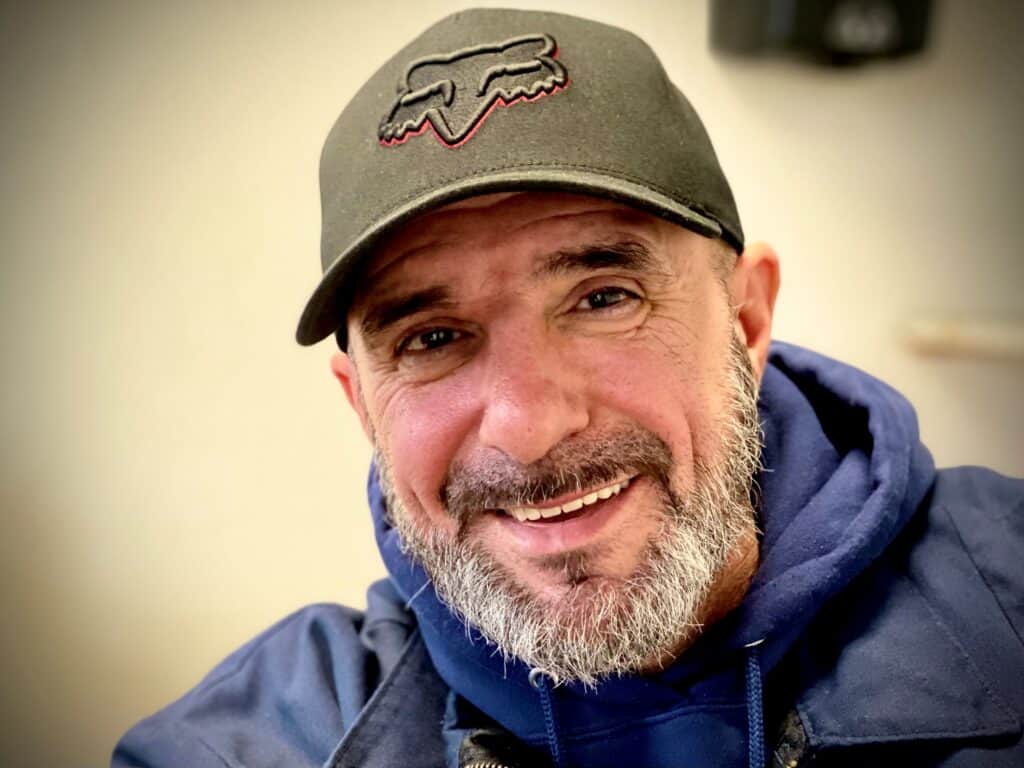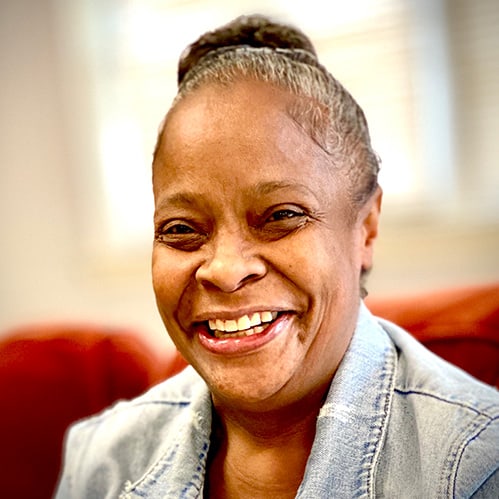
When Lenny Territo was in high school, he said, “I started using drugs, hanging out with the wrong crowd, then got in some serious trouble when I was 20, so I ended up in State Prison.” He paused, then said, “I’m sure you’ve heard that story a thousand times.”
Then in 2007, he stopped using for over a decade. “I had a carpenters and millwrights union job. A young family. And everything was going well. That was until 2019, when my wife passed away. She had complications from diabetes. I had three children. And I couldn’t handle it.” Looking away, he said, “That’s when I relapsed. I went from being a dad who was always there to a dad who was nowhere.”
“I’m lucky that I have family that has been there with my kids. My parents saw what was happening to me, and they legally took custody. Meanwhile, the judges in Recovery Court kept trying to help me. They’d send me to a program. And I would run. Send me to another program. And I would run again. This is my fifth program. And when I got to The Mission, I had every intention of running again.”
“But there was something about the way they cared here,” he said. “They invested in me. So, I started investing in myself. My thinking started to shift. They helped me with grief counseling. Then they helped me understand some of the things I’d been doing to get negative attention. And how I was running from responsibility. Then they helped me to pause and think about more positive ways of responding whenever anything went wrong. The counselors were all amazing. Paget, Gina, Kaitlynne, Amanda, Jamie. They each helped me in different ways. They taught me how to open up about what I was feeling. And how to talk about it. They all cared. And showed me how to care about myself.”
Lenny said, “Before, I just didn’t care about myself. At all. They say that insanity is doing the same thing over and over, and expecting something different. I was doing the same thing over and over, knowing what would happen to me. And I just didn’t care.”
“Now, I feel prepared for changing my life. This place is like a safety net. If you put in the effort, they will match you with it – and go beyond. When I was getting ready to leave, Jamie made it clear that if I ever needed to come back and talk with somebody, they were all here for me. And she let me know that they were all proud of me. Several of the counselors told me I was a role model.” Laughing, he added, “I’ve been called a lot of things before – bur role model wasn’t one of them.”
Lenny is now living in one of The Mission’s sober living houses, a block away from where he works at Power Magnetics, a global leader in design and manufacturing of high-performance transformers, AC reactors and DC inductors. “It was the first job I applied for,” he said. “In the interview, I was open about my past, and my hopes for the future. They liked my skills and my attitude. And they work with me, allowing me time off when I need to go to Recovery Court or anything else related to my recovery. In fact, I just helped someone else who is also in recovery to get a job here.”
In addition to his full-time job, and fulfilling his requirements for Recovery Court, Lenny is going to meetings, still in outpatient counseling, talking with his children every night and seeing them on weekends. “My kids lost their mom – and their dad – four years ago. I’m going to make sure that when I come back this time, I stay back.”


